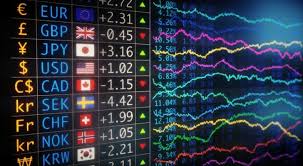
Forex trading is a popular investment opportunity globally, but many aspiring traders within the Muslim community question its permissibility according to Islamic law. Is Forex trading halal or haram? The debate around this topic is multifaceted, encompassing various interpretations of Islamic principles and financial ethics. In this article, we will explore the arguments for and against Forex trading in the context of Islam, examine the key terminologies, and provide a thoughtful conclusion to guide your decision. For further insight and resources, visit forex trading halal or haram https://trading-terminal.com/.
Understanding Halal and Haram
Halal and haram are fundamental concepts in Islamic jurisprudence, representing what is permissible and forbidden, respectively. Halal refers to any action or conduct that aligns with Islamic teachings and principles, while haram denotes actions that are explicitly prohibited. The distinction between halal and haram is crucial for Muslims in various aspects of life, including dietary laws, financial transactions, and personal conduct.
The Basics of Forex Trading
Forex trading involves the exchange of currencies on an over-the-counter market, with the aim of profiting from fluctuations in exchange rates. It operates 24 hours a day, five days a week, allowing traders to buy and sell currencies in real-time. The Forex market is highly liquid and can be accessed with relatively low capital, making it an attractive option for both professional and retail traders.
Key Islamic Principles at Play
In determining whether Forex trading is halal or haram, several key principles must be considered:
- Gharar (Uncertainty): In Islamic finance, transactions should be free from excessive uncertainty and ambiguity. Forex trading often involves speculation on currency movements, which some scholars argue introduces an unacceptable level of gharar.
- Riba (Usury): Islam strictly prohibits riba, which is the practice of charging interest on loans. Certain Forex trading practices, particularly those involving leveraged trading, may violate this principle.
- Ethical Trading Practices: Investments should be ethical and not support haram activities. Traders must ensure that their trading does not indirectly fund practices prohibited in Islam.
Arguments Supporting Forex Trading as Halal
Proponents of Forex trading as a halal practice often cite the following arguments:

- Immediate Exchange: In Forex trading, if the exchange of currencies occurs immediately (spot trading), it may qualify as a halal transaction since there is performance without delay.
- Absence of Riba: If trades are conducted without leveraging or interest-bearing accounts, some scholars believe Forex trading can comply with Islam’s prohibition against riba.
- Investment Opportunities: Forex trading can serve as an investment opportunity for Muslims, allowing them to grow capital without engaging in haram industries.
Arguments against Forex Trading as Haram
On the other hand, opponents highlight certain risks that may render Forex trading haram, including:
- Speculation vs. Investment: Many scholars argue that Forex trading is primarily speculative in nature, akin to gambling, which is unequivocally haram in Islam.
- Possible Riba Involvement: The use of leverage in Forex trading often involves paying interest on borrowed funds, thus contradicting Islamic principles against riba.
- Lack of Transparency: The Forex market can be less regulated than other financial markets, raising concerns about transparency and fairness.
Understanding Different Scholarly Opinions
The Islamic scholarly community is divided on the issue of Forex trading. Some scholars endorse it under specific conditions—stressing the importance of avoiding riba and ensuring that transactions are instant and transparent. Others, however, maintain a prohibitive stance, emphasizing the speculative nature and inherent risks involved in Forex trading.
Making an Informed Decision
For individual Muslim traders, deciding whether to engage in Forex trading requires careful consideration of personal beliefs, understanding of Islamic finance principles, and the unique risks associated with market speculation. It is beneficial to consult with knowledgeable scholars or financial advisors who are versed in both Islamic finance and Forex trading. Establishing clear investment goals and understanding the underlying principles can help navigate these complexities.
Conclusion
Whether Forex trading is halal or haram remains a contentious issue among Islamic scholars, with various interpretations and opinions present. While some view it as a legitimate investment opportunity, others raise significant ethical concerns. Ultimately, the decision rests on personal convictions and adherence to Islamic guidance. By seeking knowledge and understanding the implications of trading within an Islamic framework, individuals can make informed choices that align with their faith.

